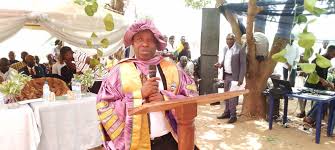The National Commission for Nomadic Education (NCNE), has held a five-day workshop to review and adapt curriculum guides for the education of pastoralists and migrant fisher-folk and farmers in four subject areas, including History, Islamic Religious Studies, Christian Religious Studies and National Values.
Addressing participants at the workshop on Monday in Abuja, the Executive Secretary of NCNE, Prof. Bashir
Usman, said that “there is a sharp decline in the understanding of our collective sense of history, moral values, social cohesion and rich cultural heritage as a people and this is particularly worse amongst the youthful population in the country who have relapsed into all manners of social vices ranging from conflicts, insurgency, armed robbery, kidnapping, drugs abuse and rape.”
He said: “The effective implementation of any programme requires continuous improvement, review and update of relevant educational materials to attain standards. The curriculum provides a cardinal link between education delivery and set national goals and objectives.
“It must therefore be characterised by relevance, appropriateness, adequacy and demands of the time in terms of contents shaping and stimulating in the minds of learners/children of diverse background in terms of culture, ethnic, religious and social settings the spirit of peace, stability, security, development, integration and co-operation. Today, as we are all aware our nation is plagued by a myriad of challenges which are impeding our journey to nationhood, national growth and development.
“Evidently, there is a sharp decline
in the understanding of our collective sense of history, moral values, social cohesion and rich cultural heritage as a people and this is particularly worse amongst the youthful population in the country who have relapsed into all manners of social vices ranging from conflicts, insurgency, armed robbery, kidnapping, drugs abuse and rape.
“Our country is therefore in dire need of a solution to stem the rising spade of this menace that is at the roots of our current national security challenges with all its attendant consequences. It is against this backdrop that the National Council of Education through the Federal Ministry of Education directed for the re-introduction of certain subjects taught at the basic level and laid emphasis on the teaching of subjects such as history, Islamic Religious studies, Christian Religious studies and National Values comprising of Social Studies, Civic and Security Education.”
Also speaking, the Executive Secretary, National Commission for Mass Literacy, Adult and Non-formal Education (NMEC), Professor Abba Abubakar Haladu, said that “the task of reversing the existing state of affairs should begin with the development of high-quality curriculum contents which address such values, followed by the provision of relevant primers and other texts and reinforced by well trained and motivated facilitators or teachers.”
He said: “The importance of this workshop cannot be over-emphasized. This is because the issue of educating the children of Nomadic Pastoralists, Migrant Fisherfolk and Migrant Farmers should be at the front banner of our basic education endeavour in view of the large number of these clients and the potential benefits the country would drive from educating them.
“In the same vein, the effort at inculcating history, religious knowledge and national values are very much needed as we strive to appeal to the cultural minds of such children and the youth through instilling in them a sense of patriotism, selflessness, moral values and hard work as a veritable remedy for the multifarious challenges affecting the efficacy of our national life. Undoubtedly, the task of reversing the existing state of affairs should begin with the development of high-quality curriculum contents which address such values, followed by the provision of relevant primers and other texts and reinforced by well trained and motivated facilitators or teachers.
“In this regard, this workshop is not only relevant but also timely because of the urgent need to create a more standardized reading matter for children at this time when the electronic media is threatening to undermine the traditional reading culture among children, including the potential to erode or undermine our national cultural, religious and moral values.
“Happily, the mandate of the National Commission for Nomadic Education strongly identifies with the need to rejuvenate reading and writing among the nomadic population, both of which are a component part of mass literacy and lifelong learning. It is instructive
to note that the National Commission for Mass Literacy, Adult and Non-Formal Education (NMEC) has developed a number of non-formal education teaching and learning materials and, therefore, looks forward to working closely with the National Commission for Nomadic Education in the exchange of ideas, expertise and relevant
materials.”




